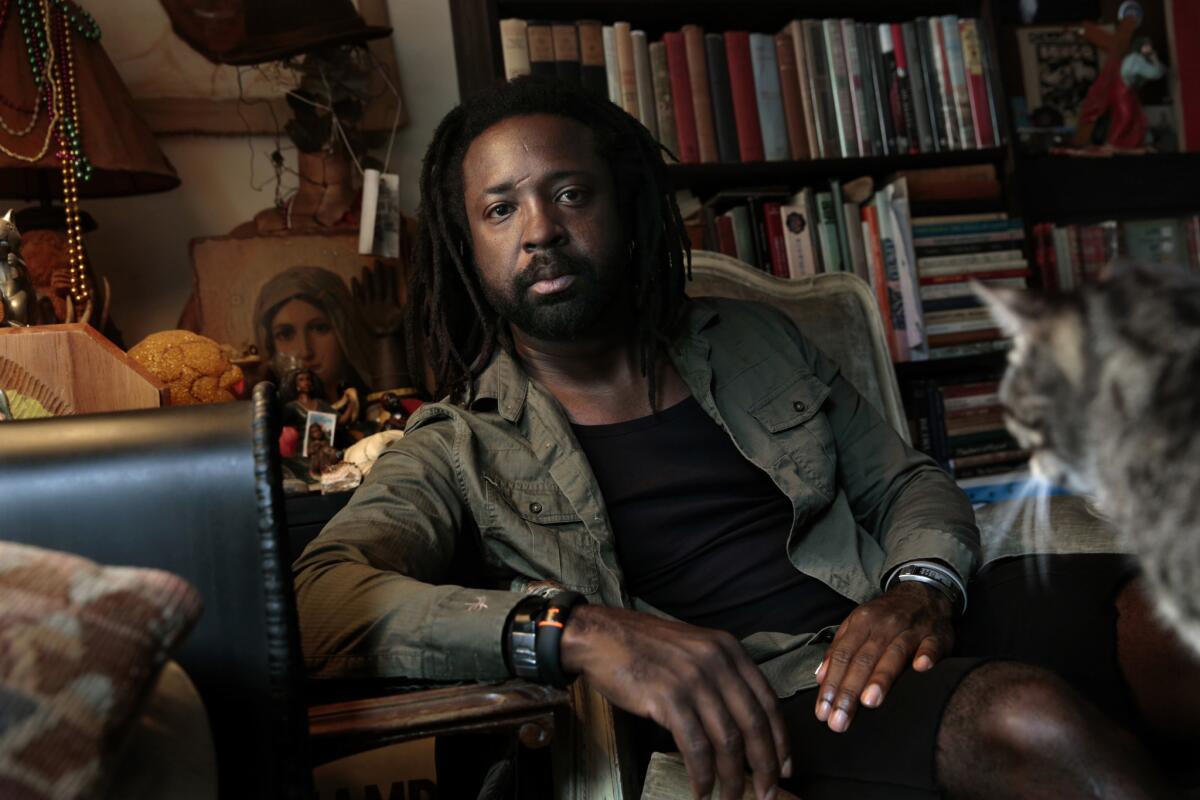Marlon James wins the Man Booker Prize

Marlon James is the first Jamaican to win the Man Booker Prize, for his novel “A Brief History of Seven Killings.”
Marlon James won the Man Booker Prize on Tuesday for his multivoiced novel “A Brief History of Seven Killings” at a black tie event in London. The prize is a the leading literary event in the UK and comes with an award of $78,000.
“Ten years ago I’d given up on writing,” James said in his acceptance speech. “I figured clearly I’m not meant to write books.”
James began his speech with a nod to the Man Booker. “It just hit me how much of my literary sensibility was shaped by the Man Booker Prize,” he said. James was born and raised in Jamaica reading the British literature of the country’s colonial past; the Man Booker was something different. “My great turning point as a writer was when a friend of mine handed me Salman Rushdie’s ‘Shame.’”
“A Brief History of Seven Killings” is James’ third novel, an ambitious and powerful commentary on the impact of violence. Told from dozens of points of view in a number of different, novelized Jamaican patois, it spins out a fiction from the 1976 assassination attempt on Bob Marley -- referenced only as “The Singer” -- and features gang leaders, politicians, ferocious fighters, a music journalist, hired assassins and a tenacious woman who makes her way to America.
James now lives and teaches in Minnesota. His last book, 2009’s “The Book of Night Women,” would not have been eligible for the award; this is only the second year that authors from around the world have been considered for the Man Booker.
The decision to make the prestigious British literary prize (previously open only to writers from the United Kingdom, Ireland, Zimbabwe and the Commonwealth of Nations) global in scope has been controversial among some readers, including two-time Booker Award-winner Peter Carey, who said the character of Commonwealth literature was unique and its prominence would be lost.
But announcing the award, Michael Wood, chair of the judges, said, “The instrument is the English language -- or perhaps I should say English languages. Englishes.” He emphasized, “This is fiction written in English and written anywhere.”
“I’m not an easy writer to like,” James admitted in his acceptance speech. He earlier told The Times: “I’m kind of a raucous writer. And I’d rather people talk the way they talk. It’s not pretty, the story; it’s not pretty, some of the thoughts these people have.... I wasn’t interested in the sort of book that would be pleasing to the powers that be.”
This year, there were only two British finalists: Tom McCarthy for “Satin Island” and Sunjeev Sahota for “The Year of the Runaways,” which will not be released in America until 2016.
American authors were equally represented, with Anne Tyler for “A Spool of Blue Thread” and Hanya Yanagihara for “A Little Life.” The sixth finalist was Nigerian Chigozie Obioma for his novel “The Fishermen.”
Book news and more; I’m @paperhaus on Twitter
More to Read
Sign up for our Book Club newsletter
Get the latest news, events and more from the Los Angeles Times Book Club, and help us get L.A. reading and talking.
You may occasionally receive promotional content from the Los Angeles Times.









